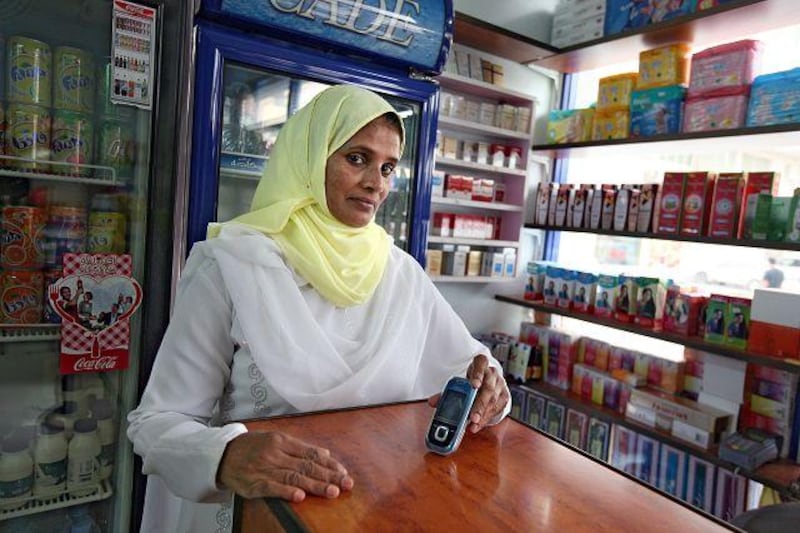Ras al Khaimah residents are being targeted by what could be an unusual home-grown mobile telephone fraud, in which people are told they have won money from a fictional lottery calling itself the "Millionaire's Office", police say.
Such fraudulent schemes - in which con artists typically send text messages telling people they have won a large cash prize, but that they must send a "processing fee" to receive it - have become common in the Emirates and around the world. Most of the fraudsters who have pursued UAE residents are believed to have been based abroad since their texts were sent from overseas lines and they used overseas contact numbers.
Those currently approaching RAK residents, however, could be inside the country, say police, because they are using local phone numbers. Mariyam Hussein, who runs a grocery store with her husband, was alive to the latest scheme, but fears a number of her customers have been caught out by it. Mrs Hussein said she started receiving texts and phone calls about four months ago from the "Millionaire's Office" telling her she had won between Dh50,000 (US$14,000) and Dh100,000 in a lottery.
She was told she would have to pay a Dh1,000 fee to get the money and was instructed to text numbers for Etisalat mobile phone recharge cards totalling that amount. Mobile-phone fraudsters make money by reselling such credits to regular customers. Mrs Hussein said she was also asked for her bank account details so the company could "transfer her winnings", and that she received several calls from a man speaking in Malayalam, one of the languages of her native state of Kerala, in India, trying to persuade her to proceed with the payment. She became suspicious and demanded to speak to someone else at the office.
"So he put me on the phone with a woman and between them, the amount they said I had won differed," she said. "When I asked her why there was a difference in my winnings, she got angry. She wanted to know why I was questioning my good luck. "I told her that I thought she was going to cheat me out of my money and I would call the police. They confidently told me to do so." Mrs Hussein said that when she contacted police, they said the calls had come from phone numbers belonging to people who had since left the country.
"That is why they had the courage to tell me to go to the police - because they knew they could not be traced," said Mrs Hussein. RAK Police said they were investigating a number of similar claims involving the "Millionaire's Office", but could not estimate how many people had been taken in by the fraud. Major Marwan al Mansoori said public warnings were the best way to prevent people losing their money. "We recommend that people don't believe this kind of SMS or let themselves be cheated in this way," he said.
The Ministry of Interior launched an intensive publicity campaign early this year to counter mobile phone frauds after similar scams were reported by police in Abu Dhabi and other emirates. So far, the ministry has sent 10 million text messages warning about various frauds. It says the scams are a heavy burden on "people's savings". Mrs Hussein said she continued to receive texts and calls from the "lottery" even after she reported the matter to police.
The National could not find any evidence that such a lottery actually exists in the UAE or elsewhere. She is worried that she has noticed a surge in people coming into her shop over the past few months asking to buy up to Dh2,000 in mobile recharge cards. Last month alone, she had four such customers. She tries to warn them that they may be being conned. But, she said, "it is hard to tell the customers that they are part of a fraud".
She said she felt particularly sorry for one Pakistani taxi driver who wanted to buy Dh500 worth of phone credit. "I had to close my shop doors and explain to him what I suspected was going on," she said. "He started crying, saying that he had already SMS'd about Dh1,000 towards a phone number." Mrs Hussein now refuses to sell more than Dh300 in phone credit to her customers, and wishes other stores would do the same.
"I feel ashamed for whoever is doing this," she said. "These men and women, they are cheating the poor people and this country." @Email:sbhattacharya@thenational.ae * With additional reporting by Anna Zacharias






